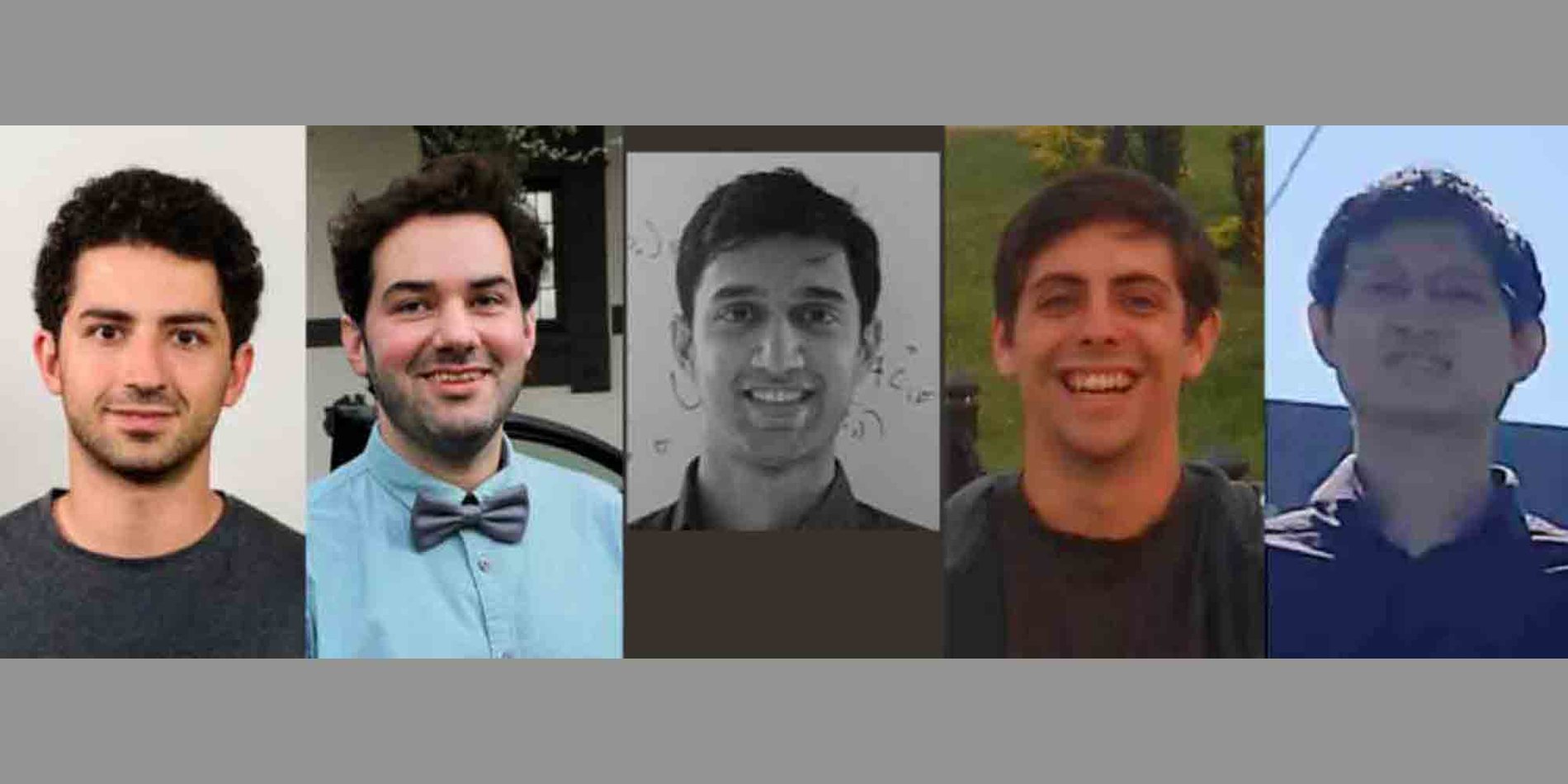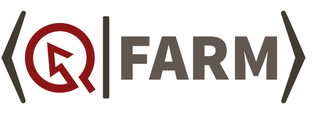Bloch Fellowship

Bloch Postdoctoral Fellowship in Quantum Science and Engineering
The Stanford-SLAC Quantum Initiative, Q-FARM, invites applications for the 2024 Bloch Fellowships in Quantum Science and Engineering. Named after the pioneering Stanford scientist Felix Bloch in honor of his wide-ranging quantum mechanical discoveries and inventions, these fellowships are intended for the next generation of researchers blazing a similarly innovative trail.
Candidates are encouraged to describe in their research proposal opportunities for collaboration with one or multiple groups at Stanford. The initial appointment includes 3 years of support including salary and benefits.
Applications and supporting credentials must be submitted through Academic Jobs Online, posting #25678. Candidates should upload their
• Curriculum vitae • Cover letter • Publication list • Two-page research statement • And arrange to have three letters of reference submitted online.
Candidates whose applications and supporting materials, including letters, are uploaded on or before November 3, 2023 will be guaranteed full consideration.
Appointments are expected to begin on or around Autumn 2024. It is expected that at least four fellowships will be awarded.
Research areas eligible for the fellowship include quantum chemistry, quantum communication, quantum computing, quantum information, quantum gravity, quantum materials, quantum optics, quantum dynamics, quantum condensed matter, quantum sensing and most other research specialties that can legitimately be prefixed by the word "quantum."
Eligibility: For consideration, candidates must have completed a PhD degree prior to their tentative appointment date. The fellowship is open to US citizens or international candidates. Candidates from groups that are under-represented in their disciplines, including women, ethnic minorities and individuals with disabilities, are encouraged to apply.
Complementary programs: Applicants for the Bloch Fellowships may be eligible for other Stanford fellowship programs, such as the Stanford Science Fellows and SITP postdoctoral fellowships. They are encouraged to apply to all relevant programs.

Tamara Kohler and Giovanni Scuri
Tamara Kohler's research area is quantum information theory – she is particularly interested in studying the intersection of quantum information with other fields, such as topology and high-energy physics. Her recent projects have included studying topological order, investigating the possibility of quantum computational advantage in topological data analysis, and using tools from quantum information theory to construct toy models of holographic dualities in quantum gravity. Tamara's faculty supervisors are Patrick Hayden and Adam Bouland. Her expected start date is September 2023.
Giovanni Scuri studies quantum emitters in solids and two-dimensional materials, with a focus on engineering efficient spin-photon interfaces. His research aims to integrate multiple qubits into nanophotonic structures in the regime of multi-emitter cavity quantum electrodynamics, for applications in quantum information processing and quantum networking. Giovanni's faculty supervisor is Jelena Vučković. He joined Q-FARM as a Bloch fellow in February 2023.

Top Row: Yaodong Li, Henry Lin, and Alan Morningstar. Bottom Row: Quynh Nguyen, Chris Overstreet, and Zhendong Zhang.
Yaodong Li's (pictured top left) general interests are in dynamical phenomena in interacting quantum many body systems. His recent focus has been on “phases” of quantum entanglement in open systems, and the new perspectives they bring to quantum error correction. Faculty supervisor is Vedika Khemani. He will start October 1st, 2022.
Henry Lin’s (pictured top center) research uses tools from quantum information theory to understand the interior geometry of quantum black holes. Leonard Susskind is his faculty supervisor. Henry's start date is August 1, 2022.
Alan Morningstar (pictured top right) is interested broadly in quantum many-body dynamics, quantum statistical mechanics, quantum information, and the intersection of these fields. He is also interested in the interactions of these topics with experimental quantum simulation and computing, and in new approaches to addressing the computational challenges that arise in these fields. Faculty supervisor is Vedika Khemani. August 1, 2022 is Alan's start date.
Quynh Nguyen's (pictured bottom left) research focuses on developing and employing X-ray time-resolved spectroscopic and scattering techniques to investigate non-equilibrium dynamics of quantum materials. She joins Q-FARM in March and continues her research at the Linac Coherent Light Source while collaborating with Prof. David Reis, Zhi-Xun Shen, and Matthias Kling groups. She is employed by the Linac Coherent Light Source, and her faculty supervisor is Matthias Kling. Her start date is April 2022.
Chris Overstreet (pictured bottom center) studies fundamental physics by using the techniques of high-precision atom interferometry. His work is applicable to tests of the equivalence principle, measurements of fundamental constants, and searches for dark matter. Mark Kasevich is his faculty supervisor. Chris started in December 2021.
Zhendong Zhang's (pictured bottom right) research focuses on using high-finesse confocal cavity to induce strong light-matter coupling for creation of new phases of matter and novel information storage and processing. His previous work focuses on studying emergent collective phenomenon in driven ultracold atomic and molecular many-body quantum gas systems. Faculty supervisor is Benjamin Lev. Zhendong's start date is September 2022.

Yujun Deng, Ryan Duncan, Nick Hunter-Jones, Alex May, Henry Maxfield, and Mihir Pendharkar
Yujun Deng Yujun will join Professor Zhi-Xun Shen's team in September. Yujun's main research interest lies in the field of condensed matter physics and materials science. She is interested in developing novel techniques to study the emergent properties in low-dimensional quantum materials.
Ryan Duncan Ryan’s research involves the use of time-resolved optical and x-ray scattering techniques to study ultrafast nonequilibrium dynamics in quantum materials. He joined Q-FARM in January, working with Professor David Reis.
Nick Hunter-Jones Nick's focus is quantum information theory and quantum many-body physics. Broad research topics of interest are random quantum circuits, quantum simulation, unitary designs, quantum complexity, information scrambling, and thermalization. Nick's recent work has focused on random quantum circuits, both as models to understand strongly-interacting quantum dynamics as well as platforms for demonstrating exponential quantum advantage and efficient implementations of quantum pseudo-randomness. Nick will arrive in August, collaborating with professors Adam Bouland, Patrick Hayden, Vedika Khemani, and Xiaoliang Qi.
Alex May Alex will join Patrick Hayden's team in September. His research areas are in quantum information theory and quantum gravity, especially within the context of the AdS/CFT correspondence. He is especially interested in using ideas from quantum gravity to learn more about quantum information theory, and in using quantum information insights to better understand quantum gravity in a cosmological setting.
Henry Maxfield Henry's research focuses on quantum theories of gravity, such as quantum aspects of black holes, and connections to quantum chaos and quantum information. He will join us in September, working with Professor Douglas Stanford.
Mihir Pendharkar Mihir's research interests focus on growth of low-dimensional topological materials and in-vacuo fabrication of device heterostructures. Mihir joined us in March and is collaborating with professors Andrew Mannix and David Goldhaber-Gordon.

Shahriar Aghaeimeibodi's research is at the intersection of engineering and quantum physics. He works toward future quantum technologies made possible by advances in nanotechnology. Specifically, using nanophotonics as a powerful tool for performing quantum information processing tasks in applications such as quantum simulation, quantum computation, and quantum networking.
Vahid Ansari's research interests are in scalable photonic networks for quantum computation and sensing.
Anirudh Krishna's research brings together ideas from coding theory and physics to propose new designs to construct error correction schemes for scalable quantum computers.
Tibor Rakovszky's research largely focuses on the intersection between the theory of quantum information and condensed matter physics. It has been understood in the past decades that many features of systems with interacting quantum particles are best described in the language of quantum information, using notions such as quantum entanglement. Tibor is interested in using and developing these tools to find universal characteristics of quantum states of matter. In particular, focusing on how quantum correlations evolve in time when one prepares an initial state that is far from thermal equilibrium. It has only recently become possible to study these situations experimentally, and there are many fundamental questions that are still waiting to be answered, some of which are connected to even more exotic topics, such as the behavior of black holes.
Yijian Zou is interested in applying novel quantum information techniques, primarily tensor networks, to high energy physics and condensed matter physics. He is particularly interested in (i) simulation of conformal field theory with quantum critical spin chains, (ii) continuous tensor networks for quantum field theory and (iii) entanglement properties of topological phases.
